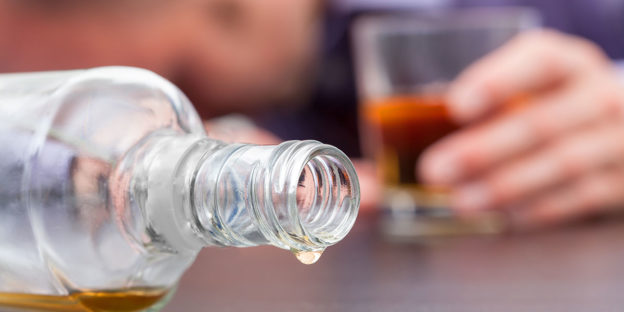 Choosing inpatient alcohol addiction treatment is an important undertaking that could lead to serious changes in your life. When alcoholism has seemingly taken over your life and caused serious complications, sometimes the only feasible option available for recovery is inpatient rehab. While there are a number of reasons to choose inpatient treatment, some of the most profound benefits involved in this type of treatment are as follows:
Choosing inpatient alcohol addiction treatment is an important undertaking that could lead to serious changes in your life. When alcoholism has seemingly taken over your life and caused serious complications, sometimes the only feasible option available for recovery is inpatient rehab. While there are a number of reasons to choose inpatient treatment, some of the most profound benefits involved in this type of treatment are as follows:
-
Medications Provided in a Safe Environment
Your safety is the top concern in treatment, but without around-the-clock monitoring by qualified professionals, there are no guarantees. According to the National Institute on Alcohol Abuse and Alcoholism, inpatient alcohol rehab centers offer medications in a safe environment that is conducive to healing and recovery.
Doctors, healthcare staff, behavioral therapists and even security are on board at most inpatient alcohol addiction treatment centers. This ensures that you are safely monitored on various levels to ensure that you are healthy during the early days of alcohol treatment and beyond. Medications may be provided for the treatment of withdrawal symptoms, underlying health problems, and various other health ailments on a case by case basis.
-
Behavioral Therapy Provided Daily
Behavioral therapy is an integral part of the recovery process. Unfortunately, many recovering alcoholics will be apprehensive about getting therapy and, as such, they may not go to the treatment that is ordered for them. Inpatient alcohol addiction treatment centers provide in-house behavioral therapy on a daily basis. This treatment, readily available, becomes a daily part of the routine for those in recovery and helps to ensure continued healing and recovery even for those who may otherwise be apprehensive towards therapy.
Integrating regular therapy into the process of recovery can greatly improve the chance that long term sobriety is achieved. Without behavioral therapy, or with minimal therapy, relapse becomes a greater risk, especially when the recovering addict exits the residential program.
-
Treatment is Intensive
Inpatient treatment is around-the-clock, every day, seven days a week. This intensive treatment helps patients to heal on a number of levels. During the early days of recovery, intensive treatment ensures safety and continued abstinence. As time tapers on, intensive treatment helps to reduce risk of relapse and further improve the recovery outcomes for the addict.
For help finding a rehab center, call 1-888-605-7779 today.
Unlike outpatient programs, inpatient alcohol treatment provides consistent access to medical care, support, and behavioral therapy that is conducive to healing. The treatment that is provided in these programs surpasses the typical support and counseling that is found in an outpatient program and, for those who require further care, can be very beneficial in the healing process.
-
Relapse Rates are Reduced due to Inability to Access Alcohol or Drugs
What do you do when you’re feeling down and want to drink? If you’re in an outpatient program, chances are you’ll head to the store to purchase alcohol and drink it. But if you’re involved in a residential alcohol addiction treatment program, you won’t have access to the alcohol. Relapse rates are greatly reduced when the recovering addict has no access to alcohol or drugs.
After 30-90 days in intensive treatment, you will gain the coping skills and confidence necessary to remain sober despite the urges that you may continue to have. Inpatient treatment provides you with the necessary time to facilitate your healing so that when you exit treatment there is minimal risk that relapse will occur.
-
Scientific Practices Form Basis of Treatment
According to a recent study posted in the NY Times, inpatient alcohol rehab is backed by scientific practices which form the basis of treatment. The majority of those in recovery require more than one active round of treatment in a residential program. In fact, many require years of treatment that takes place in a combined approach which includes residential rehab, outpatient care, and long term support and self-help.
Science has proven that treatment is most effective when it is backed by behavioral therapy, support, and medical intervention. According to the NY Times stuidy, treatment should be performed by, “a licensed addiction counselor who will see you one-on-one. Treatment should be individualized. One size does not fit all.”
Inpatient alcohol treatment centers form the foundation upon which lifestyle change and healing can occur. Scientific approaches to healing, including medical treatment and support, can help you to feel better. While each case of addiction is different, the general needs of each patient are often similar in scope. Patients require:
- Medical care for their own safety.
- Medical intervention to aid in comfort during withdrawal.
- Support for continued abstinence.
- Monitoring for abstinence and safety.
- Scientific approaches to healing for improved recovery outcomes.
If you or someone you love needs help overcoming alcoholism, consider an inpatient alcohol rehab center for immediate help. Call our helpline toll-free at 1-888-605-7779 to find a rehab center near you.

